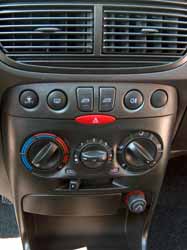Helping transport keep their cool
Strict EU environmental regulations have raised the demand for cooling units in vehicles that do not produce excessive noise. The 'Efficient cooling systems for quieter surface transport' (ECOQUEST) project developed a quieter cooling unit with lower carbon dioxide (CO2) emissions for both automobiles and trains. Project partners developed new compact layouts, innovative heat management strategies and innovative fan designs, and new passive noise control measures. These were integrated into the new cooling systems. Mass produced units for cars and larger units produced in smaller numbers for trains were considered at the same time. Researchers investigated all aspects of engine cooling. For the automotive application, a typical car platform was chosen and heat dissipation studied by modelling various module configurations. These were then analysed using system tools such as multiphysics simulation software. The cooling system for trains involved a detailed study of the coolant efficiency ratio, noise emission and energy consumption. In addition, researchers investigated the best use of space, the optimal weight of the unit and integration into a powertrain. By coupling the vehicle model with the cooling system, the entire system could be successfully studied. New design strategies were validated by full-scale tests. Two full-scale modules, one for cars or lorries and another for trains, were implemented in vehicles and examined under realistic test conditions. The technologies were developed with regard to improving thermal efficiency while minimising energy consumption, CO2 emissions, noise and costs. A high-performance numerical acoustics simulation method was adapted and validated through a separate series of small-scale model tests at an acoustic laboratory for noise assessment. The results will provide an important tool for future component development and certification of the vehicle. Commercialisation of ECOQUEST cooling systems will reduce noise at source while increasing energy efficiency and reducing CO2 emissions. This will enable Europe's automobile and locomotive manufacturers to develop more eco-friendly surface transport for people and goods, and enhance the EU's global competitiveness.







